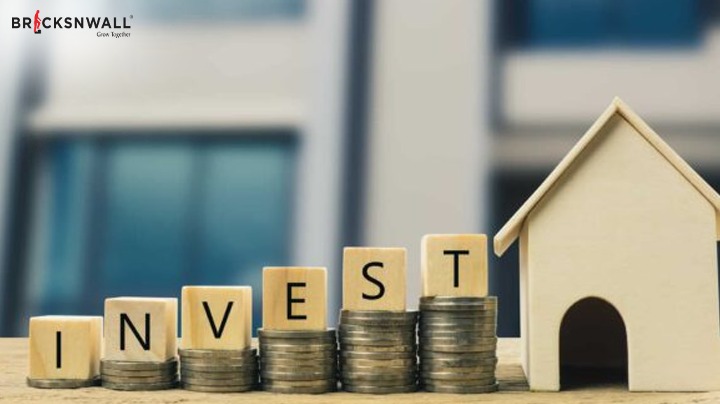Investment property benefits
Bricksnwall Trusted Experts

Table of Content
· Introduction
· Regular Income
· Capital Appreciation
· Tax Advantages
· Low-Risk Investment
Introduction
Let's talk about
property investment! The process of purchasing property for the purpose of
making a profit is referred to as investing. Property investments include
residential, commercial, and industrial properties. Property investment has
many benefits, including income, capital appreciation, tax benefits, inflation
hedges, and low risk. Above all, property investment is a smart way to invest
in something solid and tangible.
Regular Income
Regular income is one of the most
significant benefits of property investment. Passive income from rentals is
excellent. Lease agreements can ensure that you have a steady flow of income.
If tenants default, you will bear no loss as you already benefit from insurance
coverage. Investments in property generate more income than other types of
investments due to their low operational costs. Owning and generating revenue
from property isn't just about owning a physical asset. By investing in
property, you can gain monthly rent, which can provide cash flow for the
property's upkeep or even extra profit for yourself. Lease agreements can be
tricky but, with the right tenants, you can easily secure your cash flow.
Therefore, you need to be aware of the contract timelines, re-setting rental
agreements, and the need to ensure that the property is always tenanted. Low
operational costs also mean you can earn maximum profit with less maintenance.
Overall, investing in property can result in a consistent, stress-free income
flow and can reduce the risk of financial uncertainty. With low operational
costs, rental income, and lease agreements, property investment is a sound
investment that provides long-term financial stability.
Capital Appreciation
Capital Appreciation: Investing in
property for capital appreciation means investing in long-term growth. Property
appreciates in value over time, and as the demand for housing increases, the
value of the property will rise as well. This type of investment strategy
requires a long-term commitment and patience, but can yield significant returns
in the future. Positive cash flow is important when it comes to property
investment. This means the rental income generated from the property should
exceed the monthly expenses such as mortgage payments, property tax, and
repairs. By ensuring your cash flow is positive, you can continue to hold onto
the property and wait for its value to appreciate while also enjoying a regular
income. Market demand is another critical aspect to consider when it comes to
capital appreciation. Investing in a property that is situated in a desirable
location that can attract tenants and buyers could result in a higher return on
investment. A property located in an up and coming area can also appreciate in
value faster than a property situated in an area with limited growth potential.
So, as we've seen, capital appreciation in property investment requires a
long-term approach, positive cash flow, and attention to market demand. By
focusing on these areas, property
investors can achieve long-term financial success while enjoying regular
income and capital gains.




